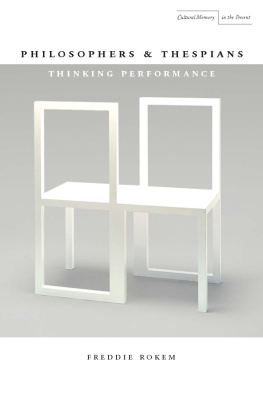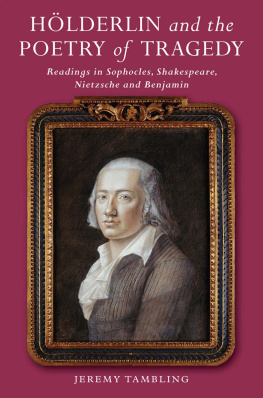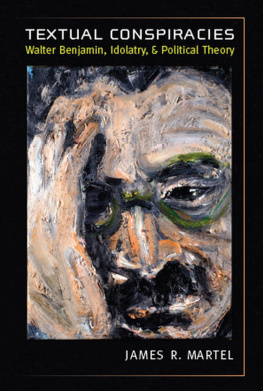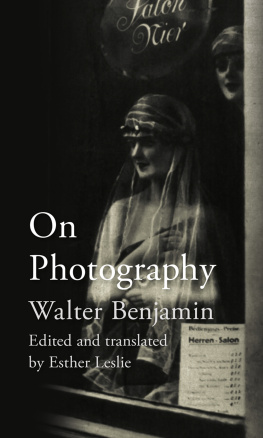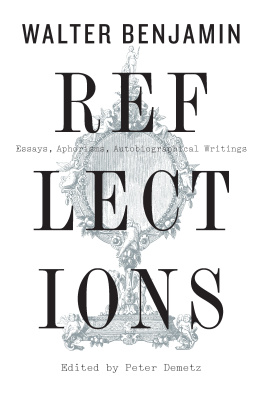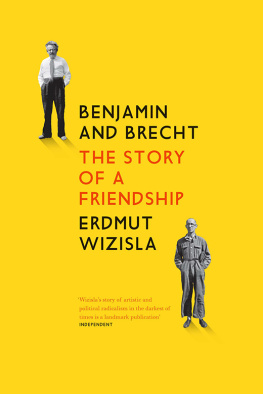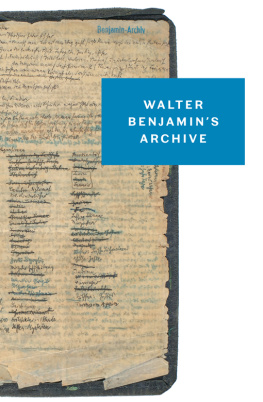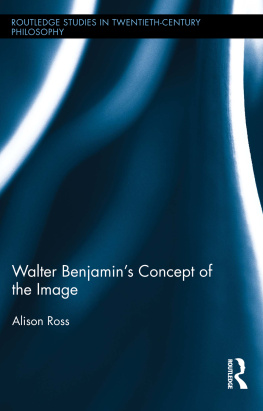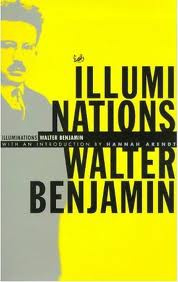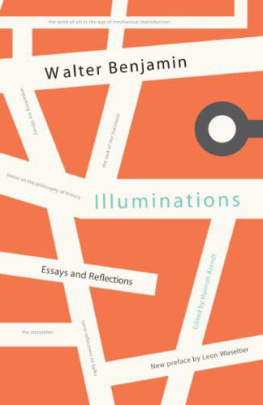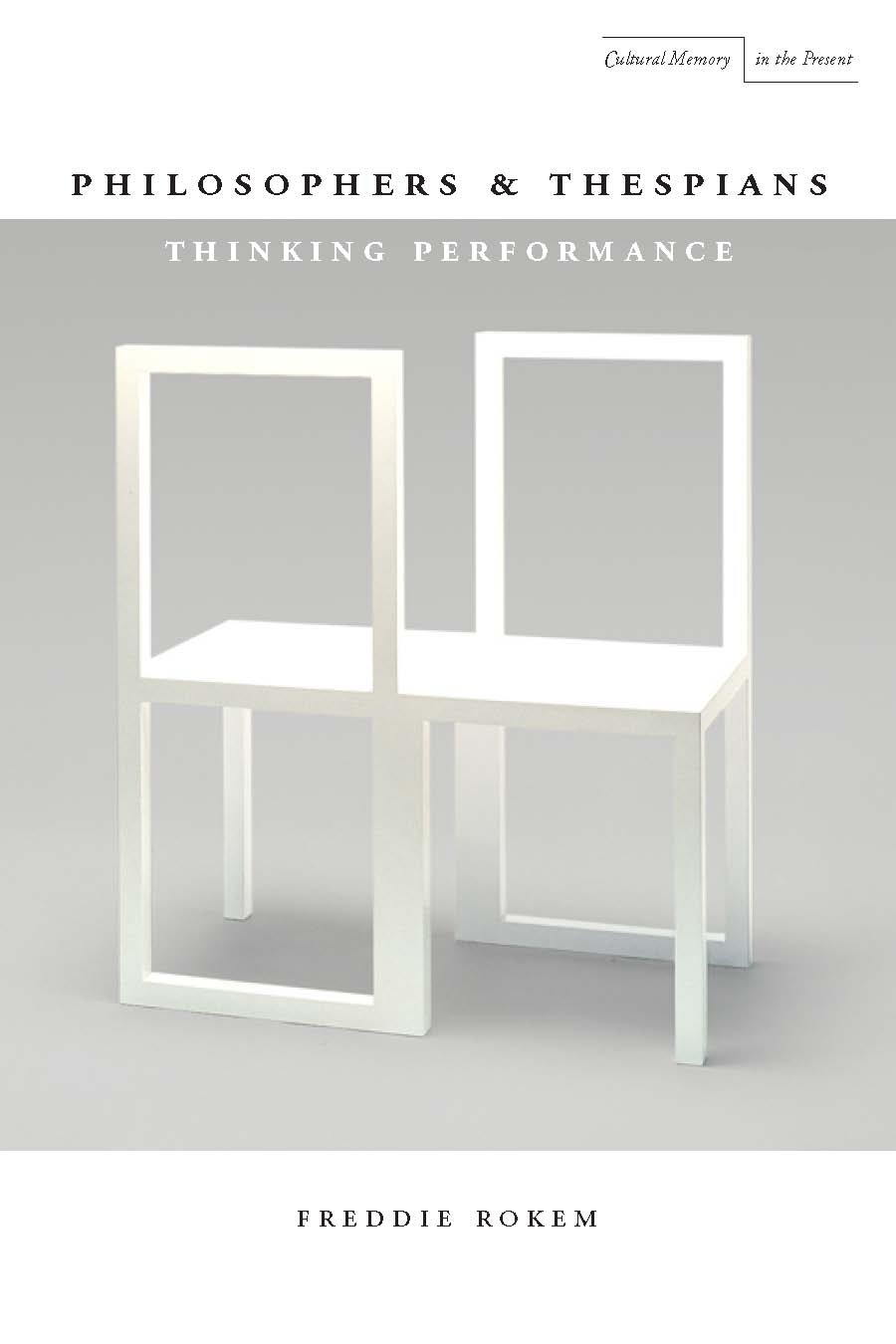During the past few years, a gradually growing number of publications about the relationship between philosophy and the theatre have been published. I will only mention some of the more recent ones that have inspired my own work: Samuel Weber, Theatricality as Medium , Fordham University Press, New York, 2004; Staging Philosophy: Intersections of Theater, Performance, and Philosophy , edited by David Krasner and David Z. Saltz, University of Michigan Press, Ann Arbor, Mich., 2006; Martin Puchner, Poetry of the Revolution: Marx, Manifestos and the Avant-Gardes , Princeton University Press, Princeton, N.J., and Oxford, 2006; Helmar Schramm, Ludger Schwarte, and Jan Lazardzig, CollectionLaboratoryTheater: Scenes of Knowledge in the 17th Century , Walter de Gruyter, Berlin and New York, 2005; Alan Read, Theatre, Intimacy & Engagement: The Last Human Venue , Palgrave Macmillan, Basingstoke and New York, 2008; Paul A. Kottman, A Politics of the Scene , Stanford University Press, Stanford, Calif., 2008; Rikard Schnstrm, En frsmak av framtiden: Bertolt Brecht och det konkreta , Brutus stlings bokfrlag Symposion, Stockholm/Stehag, 2003.
See for example: Thomas Gould, The Ancient Quarrel between Poetry and Philosophy , Princeton University Press, Princeton, N.J., 1990; Stanley Rosen, The Quarrel between Philosophy and Poetry: Studies in Ancient Thought , Routledge, New York and London, 1988; Susan B. Levin, The Ancient Quarrel between Philosophy and Poetry Revisited: Plato and the Greek Literary Tradition , Oxford University Press, Oxford, 2001.
Alexander Nehamas, The Art of Living: Socratic Reflections from Plato to Foucault , University of California Press, Berkeley/Los Angeles / London, 1998, 6.
Shannon Jackson, Professing Performance: Theatre in the Academy from Philology to Performativity , Cambridge University Press, Cambridge, 2004.
Report of the Task Force on the Arts , Harvard University, Cambridge, Mass., 2008, 1, http://www.news.harvard.edu/press/pressdoc/supplements/081210_ArtsTaskForceReport.pdf .
Plato, Symposium , in Complete Works , edited by John M. Cooper and D. S. Hutchinson, translated by Alexander Nehamas and Paul Woodruff, Hackett Publishing Company, Indianapolis/Cambridge, 1977. All references are indicated in parentheses after the quotation.
J. L. Austin, How to Do Things with Words , Harvard University Press, Cambridge, Mass., second edition, 1975. See also Chapter 6, note 15.
Judith Butler, Antigones Claim: Kinship between Life and Death , Columbia University Press, New York, 2000, 65.
Sue-Ellen Case, Classical Drag: The Greek Creation of Female Parts, Theatre Journal , 37, 3, 1985, 317327. Includes an interesting discussion of the theatrical agon .
Aristotles Poetics , translated by S. H. Butcher, Hill and Wang, New York, 1999, chapter 9, 68.
Ibid., 69.
Gerald F. Else, Aristotles Poetics: The Argument , Harvard University Press, Cambridge, Mass., 1963, 307; 313. See also G. E. M. de Ste. Croix, Aristotle on History and Poetry ( Poetics , 9, 1451a36b11), in Amlie Oksenberg Rorty, Essays on Aristotles Poetics , Princeton University Press, Princeton, N.J., 1992, 2332; and Nurit Yaari, Greek Tragedy in Theory and Praxis: Aristotles Theory of Tragedy in the Perspective of Aristophanes Theatre Practice, Maske und Kothurn , 35, 1, 1989, 719.
Una Chaudhuri, Staging Place: The Geography of Modern Drama , University of Michigan Press, Ann Arbor, 1995, 1112.
Walter Benjamin, On the Concept of History, in Selected Writings , translated by Harry Zohn, volume 4, 19381949, Belknap Press of Harvard University Press, Cambridge, Mass., and London, 2003, 391.

